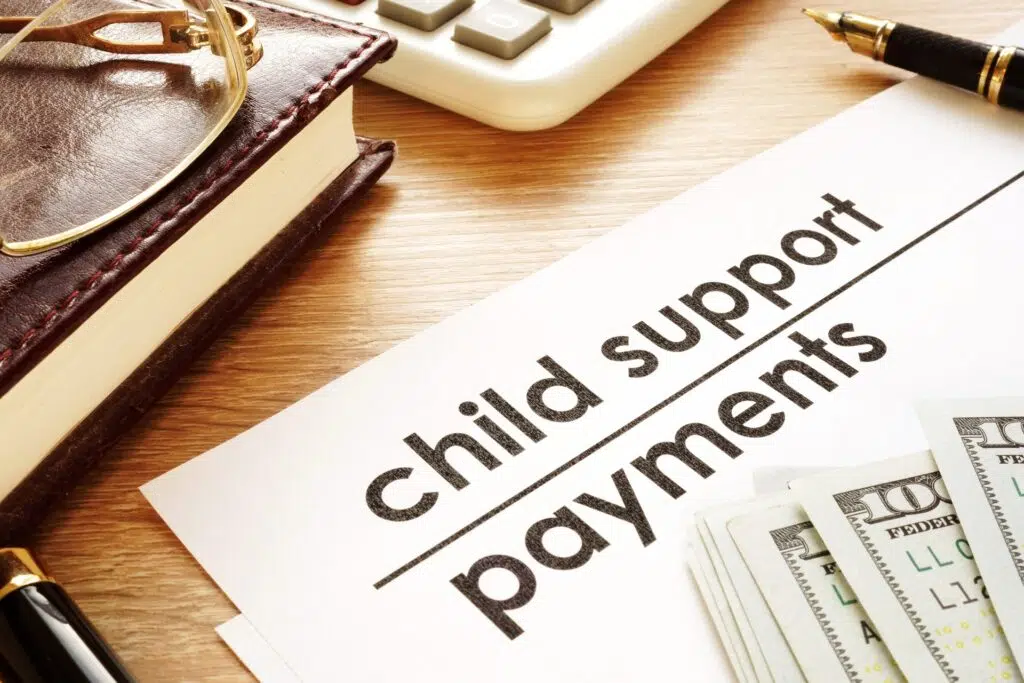Can You Send Money to Your Child During a Divorce in Pierce County, Washington?
As a parent, the safety and wellbeing of your child mean everything to you. When your relationship with your spouse or domestic partner ends, you will need to move through a seemingly endless series of crucial decisions, many of which involve your child. For instance, you and your soon-to-be ex-spouse will need to establish a parenting plan that determines with whom the child will reside and for how long. The parenting plan will also address logistical matters like where the child will spend the holidays, how decisions about the child’s education or healthcare will be made, and other important information that is designed to ease the transition from pre-divorce to post-divorce and improve communication between the parents. Moreover, child custody negotiations must also address the issue of child support, as Washington state requires both parents to support their children financially. Generally speaking, the parent who does not have physical custody of the child for the majority of the time (referred to as the “noncustodial parent”) is usually obligated to pay child support to the custodial parent in order to ensure that both parents are financially contributing to the welfare of the child.
As you prepare to move through the divorce or legal separation process in King County or Pierce County, it’s natural to feel overwhelmed and even intimidated by the sheer volume of decisions that need to be made. However, as daunting as this task may seem, you do not have to move through this process alone. When you enlist the guidance of a knowledgeable and caring Seattle divorce and family law attorney, you can trust that the best interests of you and your child will be protected at every opportunity. Many divorcing parents have questions about child custody and child support determinations, and seeking the help of an experienced family law attorney is often the most effective way to receive the customized legal guidance you need to make more informed decisions with greater confidence. Let’s take a closer look at how divorce and child support matters typically unfold in Washington state and address some common questions about child support determinations so that you can move forward with a bit more understanding of what to expect during the upcoming legal process.
Who Pays Child Support in a Divorce in Washington State?
Washington child support laws recognize that both parents have an obligation to provide for their children, even if the marriage or domestic partnership has ended. As the parties negotiate a child custody agreement that allows both parents to spend time with their children in order to cultivate meaningful relationships, one parent typically assumes the role of the custodial parent. This means that the child may spend the majority of their time with the custodial parent to minimize the hassle and disruptive nature of moving between houses multiple times in a week. While the other parent will still have physical custody of the child in some capacity (i.e., every other weekend, every two weeks, etc.), the custodial parent will have the child under their roof more frequently than the noncustodial parent will. To account for this discrepancy, the court may put a child support order in place that compels the noncustodial parent to make monthly payments to the custodial parent to help cover the costs associated with raising and caring for the child. In most cases, child support payments are intended to cover costs like food, clothing, shelter, medical care, medical insurance, education, child care, and any other costs the court believes are relevant to the specific case.
Is Child Support Mandatory in Divorce in the Seattle Area?
For the most part, Washington courts will use a standard calculation to determine the amount of child support that the noncustodial parent will be required to pay the custodial parent once the divorce or legal separation is finalized. However, there are circumstances in which one parent may be able to demonstrate to the court that it would be unjust or unfair for the amount determined using the standard calculation to be required. According to RCW 26.19.011(9), the term “standard calculation” refers to “the presumptive amount of child support owed as determined from the child support schedule before the court considers any reasons for deviation.” In other words, a judge may determine that a deviation from the standard calculation is appropriate in certain circumstances. For example, if one parent also has a legal duty to support children from another relationship, the court may take this into consideration. Or, if the child has special medical, psychological, or educational needs, the amount of child support owed by the noncustodial parent may be adjusted to accommodate these factors. To learn more about child support divorce considerations, consider enlisting the guidance of a trusted and experienced Seattle family law attorney.

When Does Child Support Start After Divorce in Pierce County?
Many parents approach the divorce or separation process by asking questions like, “Can you file for child support before divorce?” or “When does child support start in a divorce?” It’s helpful to recognize that a divorce is not a single event—rather, it is a process that’s made up of many important decisions, negotiations, and determinations. This means that child support matters will be addressed as part of the overall legal process. You can begin to fill out the necessary paperwork before the divorce is finalized, as you will need to submit these documents (along with documentation of your income, like tax returns and pay stubs) along with your other divorce paperwork. Once the court approves the terms of the divorce or issues a ruling regarding the divorce settlement, the noncustodial parent will begin to make monthly child support payments in accordance with the child support order. The most common way that child support is paid in Washington is for the noncustodial parent to have the payments withheld from their wages and then sent to the custodial parent. However, every case is different, so you can discuss your specific needs and concerns with your knowledgeable Seattle child support lawyer for more detailed information.
Other Child Support Considerations to Recognize in Washington
As you begin to move through the divorce process, it’s important to understand that certain actions you take can affect the outcome of your separation. For instance, sending money to your child could affect the terms of property and asset division during the divorce. In other words, making a substantial financial gift to your child could trigger contentious disputes about community property issues during the divorce process, as the other party may argue that the financial gift you sent belongs to them as well (under Washington’s community property laws). In some cases, transferring money held in a joint account without the knowledge or consent of your spouse could be considered a form of “dissipation of assets,” which means that the court may grant your spouse a larger share of the community property to account for this loss. However, the Social Security Administration (SSA) offers a couple of options to help divorcing parents avoid these difficult situations. The Uniform Gifts to Minors Act (UGMA) and The Uniform Transfers to Minors Act (UTMA) allow parents to establish special accounts to provide for their children (under the age of 25) without having these funds count as community property in the event that the party who set up the account decides to marry. If you are interested in learning more about your options for navigating child support and community property matters in King County or Pierce County, the dedicated legal team at the Hemmat Law Group is ready and willing to provide you with the effective and personalized support you need.

Learn More About the Divorce Process Today
Realizing that your marriage is no longer working can be a painful experience. Even if you and your partner have drifted apart, it’s natural to feel a sense of loss and grief as you face your life’s next chapter. The last thing you want to deal with during this already stressful and vulnerable time are confusing or tense legal arguments, which is why enlisting the support of a caring and trusted Seattle divorce lawyer is highly recommended. With a dedicated and knowledgeable legal advocate by your side, you can trust that the best interests of you and your children will remain protected and prioritized at every step of the legal process. Whether you are just beginning to explore your divorce options in the greater Seattle area or you need help with a specific divorce matter, the Hemmat Law Group is prepared to provide you with the exceptional legal guidance you deserve during this challenging time.
If you are interested in learning more about how to navigate child support determinations during a divorce or legal separation in Washington state, the highly qualified and caring family law attorneys at the Hemmat Law Group are ready to provide you with the customized legal guidance you need to make informed decisions with confidence. We invite you to contact our Seattle office today at (206) 682-5200 to get started with a trusted divorce and family law attorney.
The Hemmat Law Group (HLG) was founded in 1994 by Steven Amir Hemmat, a former DOJ Trial Attorney. We specialize in family law, supporting victims of the legal system.
The Hemmat Law Group help good people in bad situations.
Our divorce lawyers provide expert legal advice for all aspects of divorce, including child custody, support and property division. Contact us today.














